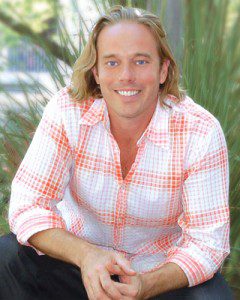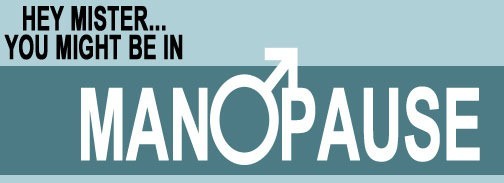20th June 2014
Guest Writer for Wake Up World
Manopause, also known as andropause or male menopause, is the term used to describe the changes in hormone production that men experience as they age. The effects can be profound. Hormone levels affect mental and physical health, and sex drive, too. While it sounds a lot like the menopause that middle-age women know all too well, manopause is more of a continuous process, potentially affecting a man for decades. In fact, for many men, “age related slowdown” can begin as early as their 30”²s. Let’s take a look at a few of the facts every man needs to know.
1. What Causes Manopause?
Testosterone encourages muscle growth, a strong libido, and mental focus. It also helps to burn fat and support energy levels. Many people attribute slow-downs in these areas to simple “aging” which is indirectly correct, as research suggests that circulating testosterone declines with age, around 1% a year, and tends to speed up the older a man gets.[1] Although the process is largely inevitable, diet, obesity and disease can accelerate the reduction in testosterone production, while other measures can seek to preserve it. [2]
2. When Does Manopause Begin?
For some men, testosterone levels can begin to decline as early as age 19. However, that’s not common and noticeable symptoms typically appear around age 40; men 51-60 are most likely to be in full swing of manopause. It’s estimated 25% of men over 70 experience testosterone deficiency and 50% over 80 years old suffer from sexual and erectile dysfunction.[3]
3. The Symptoms of Manopause
Symptoms of manopause include fatigue, decreased muscle mass, increased body fat, strength reductions, cognitive decline and mood disorders. Low testosterone levels have been tied to elevated risk of heart disease and osteoporosis. However, out of all the symptoms, erectile dysfunction, or ED, gets the most attention. You’ve undoubtedly seen the commercials for the various pills. Do a little more research and you’ll quickly stumble across ads for miracle creams and pumps. Why so many zany products full of false promises? Because the opportunists know that no man wants to suffer from sexual dysfunction or the stigma that surrounds it.
4. Testosterone Replacement isn’t the Answer
The pharmaceutical industry promotes a variety of testosterone therapies, and when you listen to the testimonials, they must work, right? Slow down. Although symptoms may improve, there is a trade off and several points need to be considered before taking supplemental testosterone:
- Testosterone replacement is not part of a man’s natural body rhythms.
- Long-term safety has not been determined for hormone replacement therapy.
- It may be dangerous for men with prostate cancer.
- Long-term testosterone therapies may increase the risk of breast cancer in men.
Not to mention the recent reports of testosterone replacement being linked to heart damage. In my opinion, testosterone replacement is not the way to go.
5. There are Natural Remedies for Manopause
Around the world, for millenia, plants and herbs have been used to encourage male vitality. A few of these are Tribulus terrestris, Muira puama, ashwagandha, and Eurycoma longifolia Jack, commonly known as tongkat ali. Supplementing with these herbs is traditionally used to counteract the typical experiences that come along with manopause.
All in all, the best approach to managing age related changes is for every man to take inventory of his behavior and identify what encourages normal hormone production (a nutrient rich diet, supplements, regular exercise) and what discourages it (smoking, drinking, inadequate nutrition, living a sedentary life). It is essential to avoid behaviors that worsen manopause symptoms!
Manopause – Is It Happening to You?
Does any of this sound familiar to you? If you’ve found a way to enjoy your golden years with the libido of a young man, please leave a comment and share your experience with us!
-Dr. Edward F. Group III, DC, ND, DACBN, DCBCN, DABFM
Article References:
- Mooradian AD, Korenman SG. Management of the cardinal features of andropause. Am J Ther. 2006 Mar-Apr;13(2):145-60.
- Cardarelli R, Singh M, Meyer J, Balyakina E, Perez O, King M. The Association of Free Testosterone Levels in Men and Lifestyle Factors and Chronic Disease Status: A North Texas Healthy Heart Study. J Prim Care Community Health. 2014 Jan 26.
- Stanley G Korenman. Manopause. West J Med. 2000 August; 173(2): 80.
Previous articles by Dr. Group:
- 8 Shocking Health Effects from the Fukushima Disaster
- Ten Shocking Facts about Mercury Amalgam
- 10 Shocking Facts about the Health Dangers of Wi-Fi
- The 9 Best Herbs for Lung Cleansing and Respiratory Support
- 7 Best Foods to Support Kidney Function
- How to Flush the Liver
- Lung Cleansing With Peppermint Oil
- The Benefits of Organic Hemp Milk + How to Make Your Own
- What is Azodicarbonamide? 9 Facts About This Dangerous Food Additive
- 8 Must-Know Facts About Fukushima Nuclear Radiation
- Nine Shocking Dangers of Fluoride Exposure
- 10 Natural Remedies for Kidney Stones
- 12 Shocking Facts About the Dangers of Psychiatric Drugs
- Seven Facts You May Not Know About Coconut Oil
About the author:
 Dr. Edward F. Group (DC, ND, DACBN, DCBCN, DABFM) founded Global Healing Center in 1998 and is currently the Chief Executive Officer. Heading up the research and development team, Dr. Group assumes a hands-on approach in producing new and advanced degenerative disease products and information.
Dr. Edward F. Group (DC, ND, DACBN, DCBCN, DABFM) founded Global Healing Center in 1998 and is currently the Chief Executive Officer. Heading up the research and development team, Dr. Group assumes a hands-on approach in producing new and advanced degenerative disease products and information.
Dr. Group has studied natural healing methods for over 20 years and now teaches individuals and practitioners all around the world. He no longer sees patients but solely concentrates on spreading the word of health and wellness to the global community. Under his leadership, Global Healing Center, Inc. has earned recognition as one of the largest alternative, natural and organic health resources on the internet.

If you've ever found value in our articles, we'd greatly appreciate your support by purchasing Mindful Meditation Techniques for Kids - A Practical Guide for Adults to Empower Kids with the Gift of Inner Peace and Resilience for Life.
In the spirit of mindfulness, we encourage you to choose the paperback version. Delve into its pages away from screen glare and notifications, allowing yourself to fully immerse in the transformative practices within. The physical book enriches the learning process and serves as a tangible commitment to mindfulness, easily shared among family and friends.
Over the past few years, Wake Up World has faced significant online censorship, impacting our financial ability to stay online. Instead of soliciting donations, we're exploring win-win solutions with our readers to remain financially viable. Moving into book publishing, we hope to secure ongoing funds to continue our mission. With over 8,500 articles published in the past 13 years, we are committed to keeping our content free and accessible to everyone, without resorting to a paywall.







